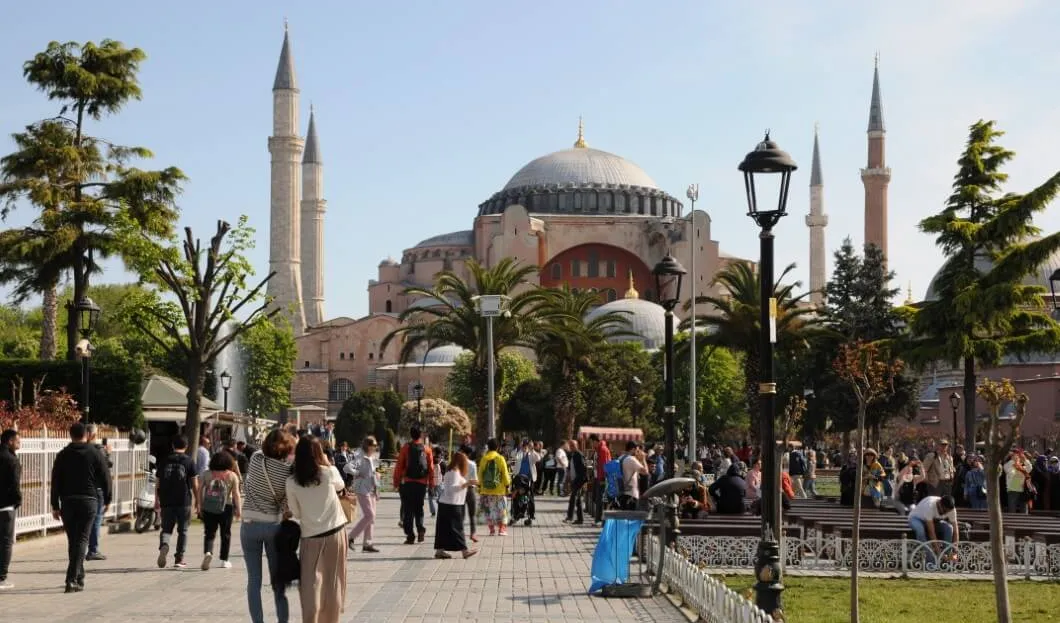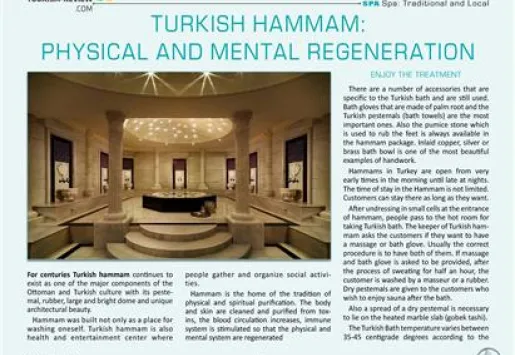
The Turkish tourism industry was in a celebratory mood at the start of the year. It had just experienced a record-breaking 2024, welcoming over 57 million visitors in the first eleven months—more than ever before. Visitors from Russia topped the list, followed closely by those from Germany.
This situation was not always the case. In the aftermath of numerous terrorist attacks in 2015, the 2016 coup attempt, and the subsequent state of emergency, many tourists chose to avoid the country out of fear. The COVID-19 also had a significant negative impact on the Turkish tourism sector. However, with the pandemic's conclusion, the Turkish travel industry rebounded strongly. A substantial advertising campaign played a crucial role in this recovery. In the previous year alone, the Turkish Ministry of Tourism promoted holidays in Turkey across more than 200 countries through large posters, commercials, and social media campaigns.
The efforts in the tourism sector are beginning to show results. In the first nine months of 2024, Turkey's tourism revenue reached USD 46.9 billion, marking a 7 percent increase compared to last year. Tourism is a crucial pillar of Turkey's economic stability. The country has faced a significant foreign trade deficit for years, and the Turkish lira has been losing substantial value. However, the foreign currency brought in by foreign tourists helps to balance this situation partly.
For years, the decline in the lira's value allowed many visitors to have a very affordable holiday in Turkey using their euros or dollars. However, this changed by 2024, when hyperinflation in the country officially reached over 44 percent, yet the lira lost little value. As a result, prices for hotel accommodation and restaurant visits have risen to at least the level found in Europe. If inflation continues, Turkey risks losing many tourists.
Simultaneously, the government has significantly increased alcohol taxes in recent years. This move was well-received by its Islamic-conservative core electorate and generated substantial revenue for the state. However, for both holidaymakers and locals, the prices of wine and beer have become extremely high. Many Turks opted to vacation in the more affordable neighboring country of Greece last year, expressing concerns that prices are rising in Turkey and the quality of services is also declining.
The year 2025 began with scandals in the tourism industry. In Istanbul alone, 38 people have died from adulterated alcohol since New Year's Eve—a situation exacerbated by the steep alcohol tax. A hotel fire followed this in Kartalkaya's ski resort. These incidents raise concerns about cost-cutting measures impacting safety in certain establishments.
The Turkish ski industry is actively improving its image, which is still relatively young. The country offers 42 ski resorts, many located at elevations over 3,000 meters. In particular, the eastern region of Turkey has seen the establishment of new winter sports areas and luxurious hotels in the last decade, often at high prices. However, the industry may face challenges in recovering from the significant fire in Kartalkaya. This recovery will depend on operators and government officials convincingly demonstrating that they adhere to international standards.












